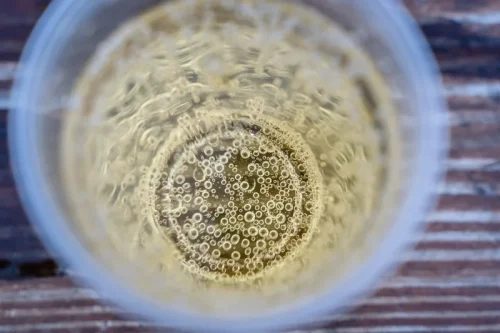
There’s no known safe amount of alcohol to drink during pregnancy, and there’s no type of alcohol that is safe. A single episode of binge drinking, especially during the first few weeks of pregnancy, can lead to FAS. Having four or more drinks within two hours is considered a single binge-drinking episode for females. However, recognizing the problem early and getting treatment for symptoms of the disorder can improve outcomes for your child. It is important to note that many of these symptoms can occur for a range of reasons, so a person should consult a doctor if a child has any of them.
- You also may choose to talk to a mental health professional.
- One person might have only a few, while another person could experience all of them.
- There is no cure for fetal alcohol syndrome, but symptoms can be managed.
- This means that some people with mild symptoms of FASD might never be diagnosed.
- Sometimes, this means that people drink alcohol without realizing that they are pregnant.
- Early detection and treatment can help children learn vital skills and improve their chances of being able to live independently as adults.
- Prenatal alcohol exposure is the leading preventable cause of congenital (present at birth) conditions in the United States.
Reducing risk
- These include healing practices, such as massage and acupuncture (the placement of thin needles into key body areas).
- No two cases are exactly the same, so specialists will tailor the treatment plan to each person’s needs.
- Generally, the more alcohol a person consumes during pregnancy, the higher the chance of FAS.
- Early identification can improve the outcome for children with FAS and raise their quality of life.
- FAS is an exception to this, as the symptoms are often distinctive enough to confirm a diagnosis on their own.
- Alcohol in the mother’s blood passes to the baby through the umbilical cord.
Not only that, but women may not know they’re pregnant in the first 4 to 6 weeks. To prevent FASDs, a woman should avoid alcohol if she is pregnant or might be pregnant. This is because a woman could get pregnant and not know for up to 4 to 6 weeks.

What Are the Interventions or Treatments for Fetal Alcohol Spectrum Disorders?
Early signs include fatigue, muscle weakness, itchy skin, and abdominal pain, which can eventually lead to jaundice (yellowing of the skin) and dark urine, among others. If untreated, this condition can lead to liver failure—in which the organ stops being able to complete its functions. FASDs can cause behavioral, mental, and physical symptoms in children, which can continue into adulthood. There is no cure for FASDs, but treatments can help manage symptoms. Once the condition has been diagnosed, a team of healthcare professionals can assess your child’s needs and offer appropriate educational and behavioural strategies. People with fetal alcohol syndrome and other FASDs are more likely to develop secondary conditions.
Staging Liver Disease

Alcohol seems most damaging in the first trimester (three months) of pregnancy but can affect the fetus at any time during the pregnancy. Unfortunately, people with FAS are more likely to experience legal troubles, have secondary mental health diagnoses, and have higher rates of suicide. People with FAS have better outcomes if they experience a supportive and loving environment during childhood. Prenatal alcohol exposure is the leading preventable cause of congenital (present at birth) conditions in the United States. When consumed during pregnancy, alcohol crosses the placenta and enters the fetus’s bloodstream. It’s not known whether a father’s drinking affects their sperm or contributes to fetal alcohol syndrome at conception.
- The more alcohol you drink during pregnancy, the greater the chance of problems in your baby.
- Alternative treatments also include movement techniques, such as exercise or yoga.
- Additionally, many of these symptoms can occur due to other conditions.
- Public school systems can also offer support to children with FASD.
- Instead, these secondary effects happen as a result of having FAS.
Abstaining From Alcohol to Prevent Fetal Alcohol Syndrome
- Alcohol use at any time during pregnancy may lead to issues with growth or the central nervous system.
- Once the condition has been diagnosed, a team of healthcare professionals can assess your child’s needs and offer appropriate educational and behavioural strategies.
- Brain growth in the fetus takes place throughout pregnancy, so stopping alcohol consumption as soon as possible is always best.
- If you’re a heavy drinker, reach out to a doctor for support.
However, this requires that a mother stop using alcohol before becoming pregnant. Because no amount of alcohol is proven safe, women should stop drinking immediately if pregnancy is suspected. Children born with this syndrome experience the symptoms throughout celebrities with fetal alcohol syndrome their entire lives. Some symptoms can be managed with treatment by a healthcare provider, but they won’t go away. Any amount of alcohol during pregnancy can cause fetal alcohol syndrome. Damage to your developing baby can happen at any point during pregnancy.
